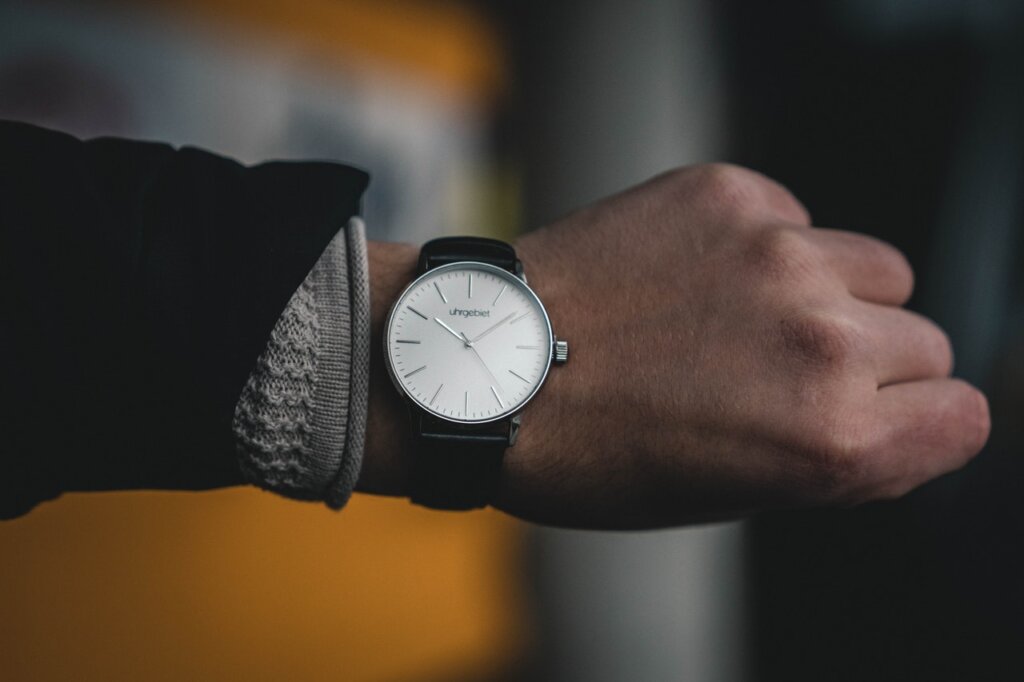Your Perception of Time Is Based on Your Emotions


Written and verified by the psychologist Laura Ruiz Mitjana
Have you ever wondered if your emotions or your mood influence how you perceive time? After all, when you’re sad, you probably think that everything goes slower. Alternatively, when you’re excited or having fun, you have the feeling that time literally flies. However, in reality, time passes at the same rate for us all. It’s our perception of it that changes.
As a matter of fact, your perception of time changes depending on how you feel, how old you are, and also the situations you’re experiencing.
Your perception of time according to your emotions
Your perception of time is like an internal clock. This is quite useful, since time centers and locates you. In addition, this perception can also help you identify how you feel.
John Wearden, a professor at Keele University in the UK, has been working on time perception for more than thirty years. He first concentrated on animals and later on humans, and has published more than 100 papers on the subject.
In an interview conducted for the Autonomous University of Barcelona (Spain), Wearden claims that our perception of time changes according to our age and what we’re doing. With regard to age, the professor states that older people, as a rule, claim that time passes faster as they get older. Furthermore, he claims that our perception of time varies depending on what we do. For short times, we use an internal clock, but for longer times, we use external influences or factors to quantify time. For example, distance allows us to calculate the time it takes to get somewhere.

The perception of time according to age and novel events
Sometimes, you might fill your day with good things to do. This makes you perceive that time passes faster, especially when they’re novel experiences.
It’s particularly noticeable in childhood when everything is new and yet to be discovered. On the other hand, when you’re older, there aren’t so many memorable moments (certainly in the sense of ‘novelty’), but they continue to mark your perception of time.
Emotions and mood influence your perception of time
It’s not only your age or your memorable moments that influence how you perceive time. It also varies depending on:
- Your emotions.
- Your state of mind.
Before seeing how these elements impact you, let’s find out what your perception of time is if you’re in a natural (and happy) state.
How do you perceive time in a natural state?
In good moments, when your life flows along in a satisfactory way, the present might seem slow, but pleasant. Your days appear to spread out before you because you’re doing many things, but you’re experiencing them slowly. That’s because you’re flowing along with the tide.
Thus, if you feel that you’re connected to the current moment (and at the same time, relaxed), you’re more likely to perceive that time passes slowly.
When you’re happy
If you’re not only in a ‘natural’ or flow state but are also enjoying yourself, being happy, and having a perfect time, then time flies by. You don’t stop to think, you just live. You have the feeling that time flies by because you’re enjoying yourself.
On the other hand, when you feel bad (or in the face of other emotions), your perception of time changes.
Fear and anxiety and the perception of time
When you’re scared and afraid, everything seems long. In effect, you have a dilated perception of time. Everything happens slowly for you because you’re scared and you stay ‘hooked’ on that fear, counting the minutes and hours for your uncomfortable state to pass. Furthermore, by fixing your attention on time passing, it goes by even slower for you.
On the contrary, when you’re excited, anxious, or stressed, you feel that time passes faster, because “you have so much to do and so little time”, or at least that’s how you feel.
Boredom and sadness: time passes slowly
What happens when you’re feeling another kind of emotion? For instance, when you’re sad or bored. According to the psychologist, Luis Muinho, an individual’s perception of the passage of time can help determine if they’re in a depressive (or sub-depressive) state.
If you’re in a depressed, sad (or bored ) state, something rather curious happens. Time passes really slowly at the time, but extremely quickly when you look back on it. Thus, afterward, you perceive that several months have flown by, but when you were living through them, they seemed to pass really slowly.
When you’re in an intense state of boredom, or feeling sad or depressed, time passes slowly but, looking back, you remember it as if it passed really quickly.
Your perception of time indicates your emotional state
Your perception of time is a good emotional thermometer that tells you how you are. If this perception is altered, your emotions also change. Therefore, it can be a good indicator in psychotherapy or in a process of self-knowledge.
If you want to know how you are, ask yourself: Am I in a forced rhythm? Is it making time seem to pass more slowly? If you learn to identify your own rhythm or perception of time, you’ll be able to recognize when your emotions are altered.
“What marks our mental health is our relationship with time.”
-Luis Muinho-

How to live the passage of time in a healthy way
Everyone has their own rhythm, their own internal clock, and their own personal circumstances that influence whether they perceive time to pass quickly or slowly. This perception of time changes from time to time or as we grow older. It’s a perfectly natural process.
However, learning to live in the present moment and savor time without wanting it to rush by or stop is good for your mental health.
If you’re anxious you’re living in the future and if you’re depressed you’re living in the past
In psychology, it’s said that anxiety is an excess of the future and depression is an excess of the past. Good mental health means living in the present.
For this reason, we recommend that you don’t think about tomorrow too much because it could cause you anxiety. Similarly, don’t remain in a past that no longer exists, as this could make you fall into depression. Also, bear in mind that your memory modifies your memories and idealizes them.
“Dost thou love life? Then do not squander time, for that is the stuff that life is made of.”
-Benjamin Franklin-
Don’t fight against the passage of time, learn to flow with it
If you really want to live fully, and in a calm way, it’s best not to try to fight against the passage of time. Time passes whether you like it or not. In fact, it’s what tells you that you’re alive. Don’t obsess over whether it passes slowly or fast for you, just savor it.
Go with the flow. It’s the only way to live calmly and fully.
“Don’t count the days. Make the days count”.
-Muhammad Ali-
All cited sources were thoroughly reviewed by our team to ensure their quality, reliability, currency, and validity. The bibliography of this article was considered reliable and of academic or scientific accuracy.
- Cebrián, M., Muinho, L. y González, M. (2022). Entiende tu mente: Claves para navegar en medio de las tempestades. Editorial Aguilar.
- Gutiérrez, A., Reyes, D. & Picazo, O. (2017). Percepción del tiempo en la neuropsicopatología: una revisión sistemática. Psiquiatría Biológica, 24(3), 85-96.
This text is provided for informational purposes only and does not replace consultation with a professional. If in doubt, consult your specialist.








